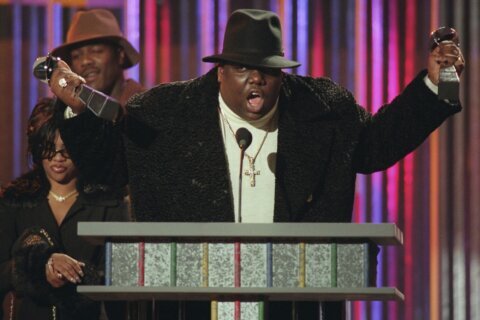DOVER, Del. (AP) — West Virginia Gov. James Justice is refusing to pay a balance of $1.9 million on a judgment against him and one of his family-owned coal companies in a federal lawsuit, an attorney for a Pennsylvania coal exporter said Friday.
Justice, who is running for the Republican nomination for U.S. Senate in West Virginia, also has refused to respond to information requests from Xcoal Energy & Resources, which is trying to collect what it is owed, attorney Daniel Garfinkel told a federal judge in Delaware.
“Xcoal has demanded payment. It has not been forthcoming,” he told Judge Leonard Stark.
Friday’s hearing came just days after federal officials filed a lawsuit in Virginia against 13 coal companies owned by the Justice family, saying that they have failed to pay millions of dollars in penalties for mining law violations. Justice is not named as a defendant in the lawsuit. But he nevertheless suggested it is a political ploy to squelch his bid to unseat Democratic Sen. Joe Manchin.
Justice’s companies have been frequently targeted in lawsuits over unpaid bills. In a recent filing in Kentucky, an attorney for the companies noted that only about a dozen of the 100-odd Justice coal and farming companies have continued to actively operate, and that “operating cash is chronically scarce and transferred among companies on a just-in-time basis.” Testimony from company representatives described “a somewhat disorganized organization whose resources are stretched to the limit with respect to both finances and personnel,” the attorney added.
In Delaware, Xcoal sued the coal magnate and two of his companies, Roanoke, Virginia-based Bluestone Energy Sales Corp. and Southern Coal Corp., in 2018, saying that they failed to fulfill an agreement to deliver hundreds of thousands of tons of coal for shipment overseas. Xcoal and Bluestone entered into an agreement in 2017 under which Bluestone would supply Xcoal with 720,000 net tons of metallurgical- grade coal from a mine in Bishop, West Virginia. Southern Coal and Justice guaranteed the payment and performance obligations of Bluestone, a pass-through entity with no assets.
In 2021, Stark ruled that Xcoal was entitled to slightly more than $6.8 million in damages from Justice and Southern Coal. The amount was later increased to more than $10 million to account for pre-judgment interest, post-judgment interest and attorneys’ fees and costs.
A federal appeals court upheld the damage award. Xcoal later collected $8.1 million from a surety bond obtained by the defendants while they appealed Stark’s ruling, but the balance remains unpaid.
“Is there some defense to paying the one point nine million dollars left in the affirmed judgement?” Stark asked John Sensing, an attorney for Justice. “Because as I understand it, we’re only talking about this because your clients are refusing to pay, and therefore you’re forcing the plaintiffs to start execution proceedings on other property that one or more of them own.”
Sensing acknowledged that he could not immediately articulate a reason why the balance should not be paid. He nevertheless said Justice wants to postpone providing any information to Xcoal until discovery responses from the two corporate defendants, Southern Coal and Bluestone, are complete. Justice also plans to seek a protective order to limit public access to any information he might provide, Sensing said.
“The issue, and the governor’s concern, arises from the fact that he’s running for a Senate seat in the state of West Virginia,” he told Stark.
“We do live in highly politically polarized times,” Sensing said. “There’s obviously quite a bit of interest in the governor’s Senate run…. In light of that, the governor is highly concerned about the risk of his personal financial information being inadvertently disclosed as the result of discovery.”
Stark, who ordered attorneys to engage in conversations and submit a status report next Friday, appeared skeptical of Justice’s plan to seek a protective order but said he would keep an open mind.
“I would say, per se, running for office does not give you more rights or less rights than any other litigant,” Stark said.
Spokesman in the governor’s office, and his Senate campaign manager, did not immediately respond to an email seeking comment.
Copyright © 2024 The Associated Press. All rights reserved. This material may not be published, broadcast, written or redistributed.







